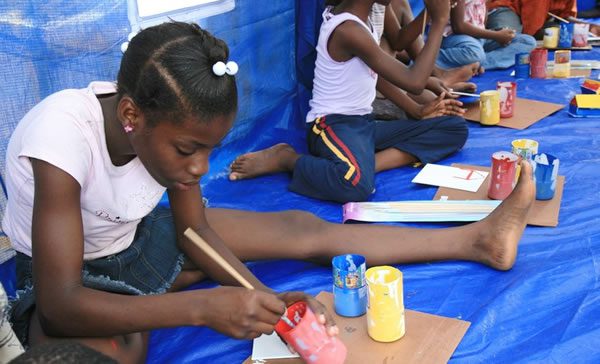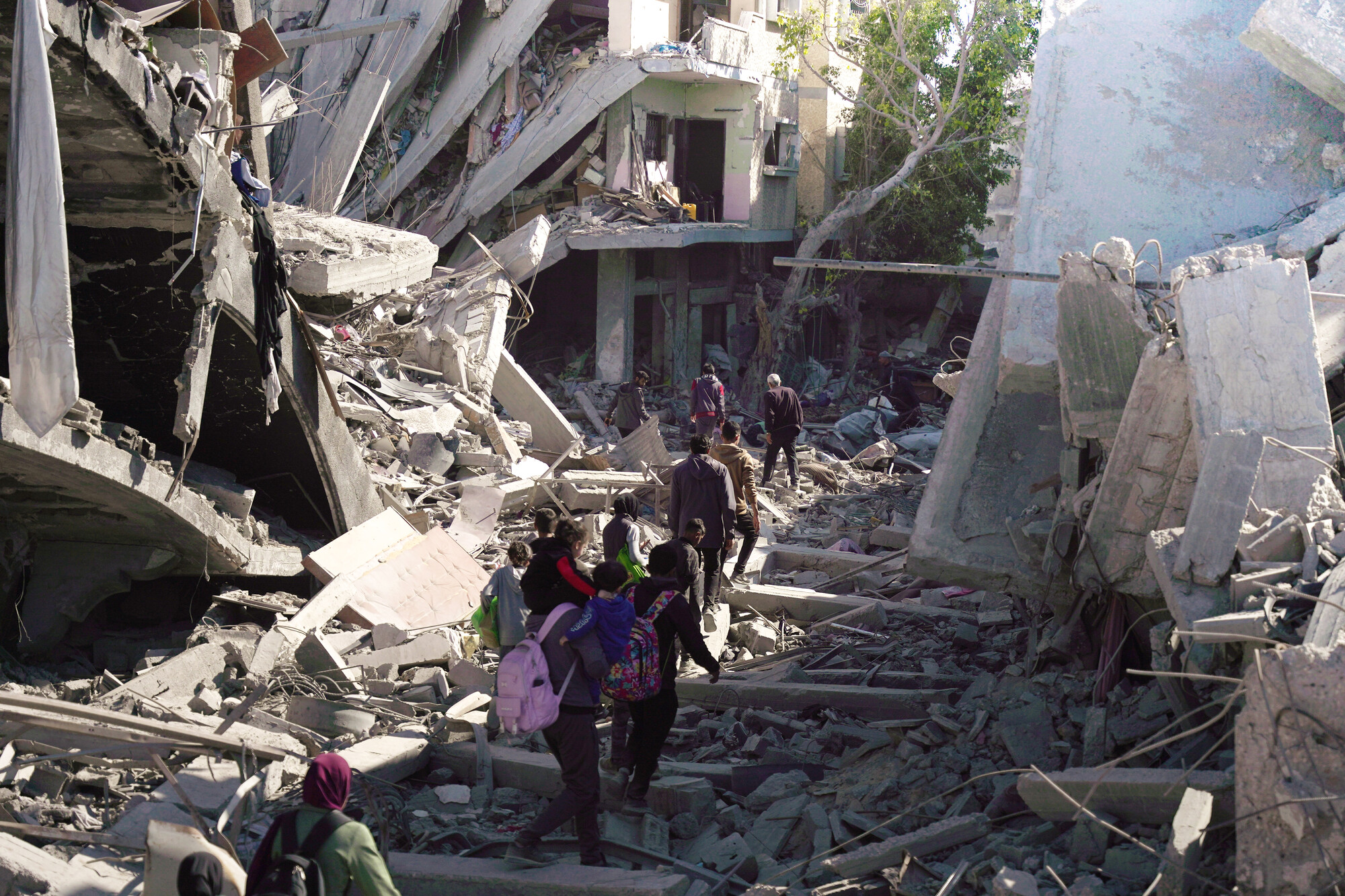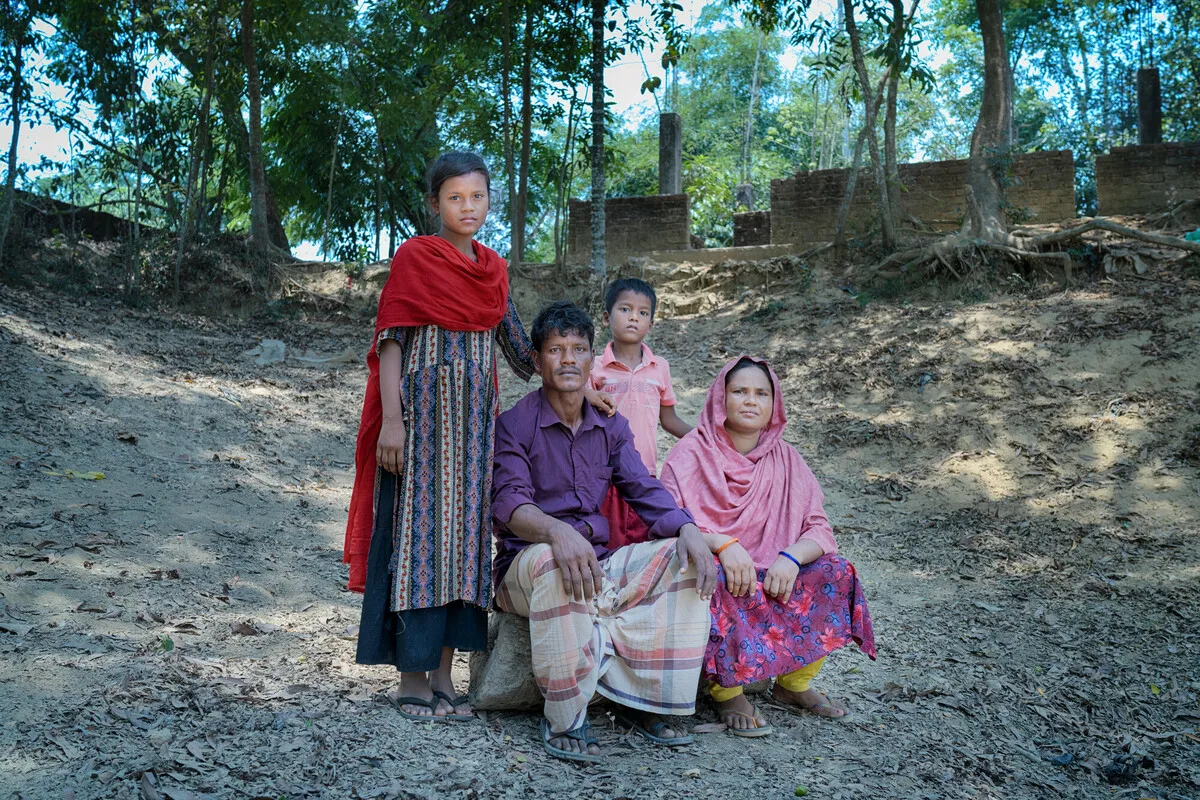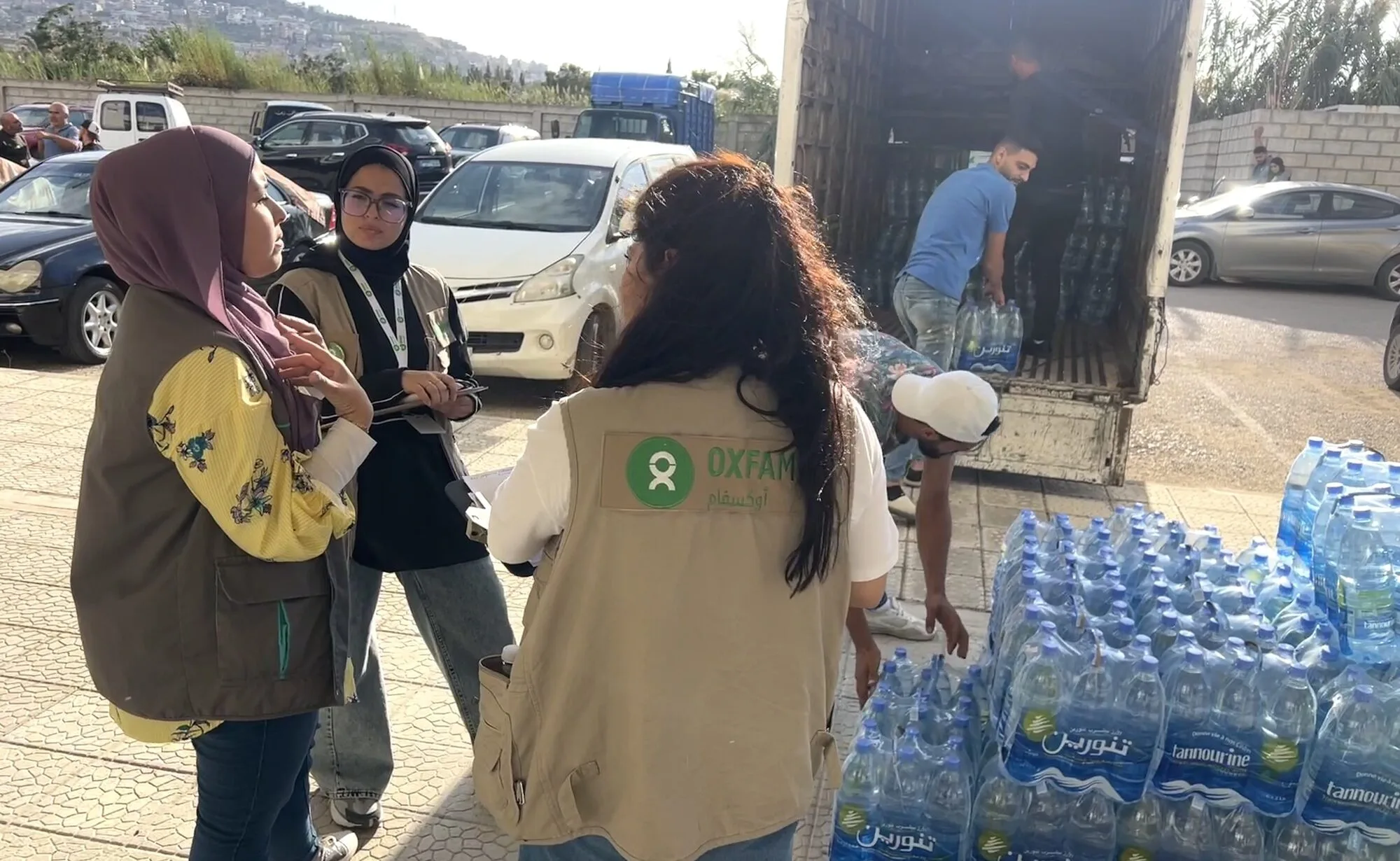An enormous amount of rubbish is created in the camps housing displaced people in Haiti, and dealing with it can be a big problem. In Petion-Ville Golf Camp Oxfam’s Public Health team have been working with three local artists and children to come up with an innovative and creative solution. Julia Gilbert tells the story.
Before coming to Haiti I had no idea how much creative work we do with children as part of our water sanitation and public health work, and it’s been really exciting for me to discover the different projects we’re working on here.
Last week I visited the golf club to check out some public health activities that involve making toys out of waste. The team at the golf club are working with a couple of local artists teaching children how to make colourful toys out of Styrofoam food containers and empty plastic bottles and drink cans. Before we went to the camp, I was shown some of the models, which were absolutely adorable.
There was a little plane, a bus, a doll-size table and chairs, and a little house, painted in bright colours. There were various health messages painted on them: “don’t throw garbage on the ground, protect the environment”, “don’t pee in plastic containers”, “wash your hands every time you go to the toilet”.
When I had first visited I had seen lots of kids with simple handmade toys like little cars made out of milk bottles and caps, which they pulled around on strings, so it really makes sense to build on this, not only to encourage awareness of waste and recycling, but also to get across some really important hygiene messages.
[slideshow id=6]
When we arrived at the camp the children were gathered around a brightly decorated tent, waiting for the artists to arrive.
Outside the tent was a makeshift hopscotch court with public health related illustrations in each box: hand washing, buckets for carrying water, etc. The game was simple but clearly fun and informative – the public health promoter would ask questions about various hygiene practices and the reasons behind them, and all the kids would raise their hands to respond. Whoever gave the right answer went to the starting point and then hopped their way up to number ten, to general applause.
As I left the camp, the children were beginning to clean the containers collected from the waste and cutting them up to make toys.
A week or so later, I went back, and this time they had finished their first toy project and each had their own little hand-made recycled styrofoam house in red and blue and yellow.
As we watched, they dipped their paintbrushes in white paint and added their hygiene messages on the roof, usually very neatly and carefully, but sometimes with rather a lot of artistic licence!
We asked them about what they had learned, aside from painting and making toys, and it seemed like they’d taken the hygiene messages on board – they told us about how important it is to wash one’s hands before eating and after going to the bathroom, to avoid germs. And I don’t think it was just our prompting… when I arrived, one of them asked me – with a cheeky grin – if I had washed my hands too, which I thought was rather a good sign.
Flying kites for public health
Before Easter, Oxfam teams also took advantage of the rather lovely local Haitian custom of making kites. Then on Good Friday they flew them high up in the air, which we were told is a way for them to be nearer to God.
For a few weeks before Easter I had indeed noticed kites made of plastic or thin paper in all colours being sold on the streets all around Port au Prince. In Don Bosco camp near Carrefour, the public health team used this kite-making tradition to pass on public health messages, and had a kite maker produce a model with a hygiene message on it to use at a workshop with the children.
I went to the camp on the last day and saw a lovely colourful display of kites with frills and tails shimmering in the breeze, and messages about latrines and clean water. Oxfam Spain’s public health teams launched more than 300 kites with hygiene messages for the Easter celebration, in Mausoleum, Saint-Anne and Quisqueya camps.
Learning important messages
It’s inspiring seeing the children working and playing together, learning important messages about hygiene and sanitation – which they will then pass on to their friends and families.
And I guess for me, knowing so many of these children are not only traumatized by the earthquake, but living in terribly difficult conditions day after day, it’s a little breath of fresh air, to see them taking part in these normal, fun activities, like children anywhere else.
Related posts: Staying health in Haiti



